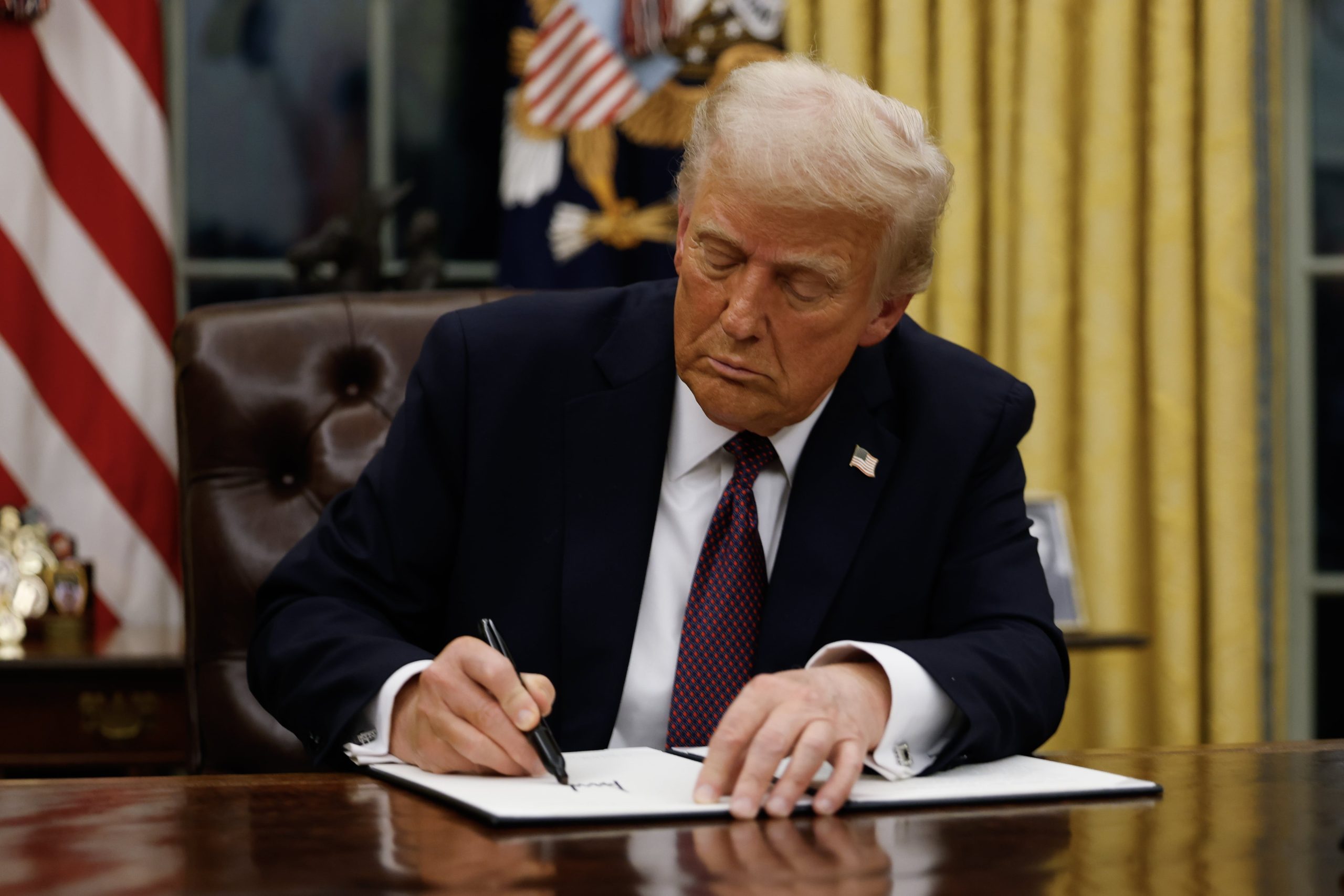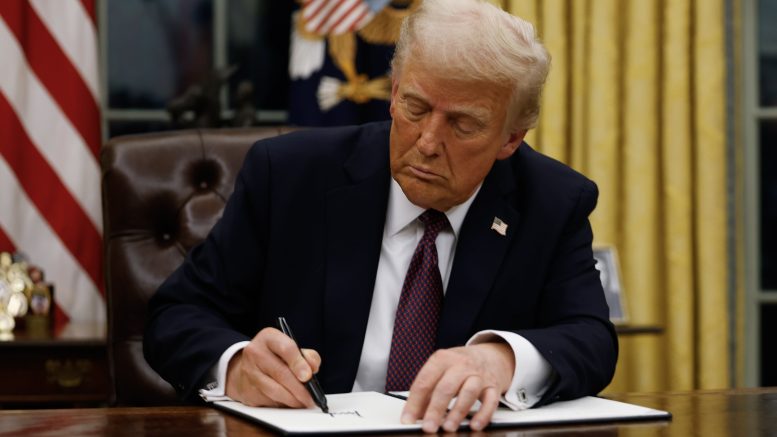
Court challenges have blocked Trump’s attempt to end birthright citizenship. For now.
As President Trump’s efforts to end birthright citizenship work their way through the courts, Minnesota attorneys and legal experts say it could reshape our definition of who belongs in the U.S.
by Katelyn Vue
Hours after he was sworn in to his second term in January, President Donald Trump issued an executive order suspending birthright citizenship, or the right of all people born or naturalized on U.S. soil to citizenship.
That order is currently on pause following a flurry of lawsuits and a U.S. Supreme Court ruling that limited the ability of lower courts to block a policy from taking effect nationwide.
Trump’s order would deny citizenship to children born in the U.S. who do not have at least one parent who is a U.S. citizen or green card holder.
Minnesota legal experts and immigration attorneys say that redefinition of citizenship could create an underclass of future children born here, but denied the legal protection of citizens.
“We’ve had millions and millions of people who have operated their lives based on this understanding that their children born here are U.S. citizens,” said Paschal Nwokocha, a Minneapolis-based immigration attorney. “We have our society organized on that legal principle.”
Here’s what local attorneys know so far about what we know about the policy and how it could play out:
What is birthright citizenship?
Birthright citizenship is guaranteed by the 14th Amendment to the Constitution, which grants citizenship to “all persons born or naturalized in the United States.” The amendment, passed at the end of the Civil War, aimed to ensure that Black Americans, including formerly enslaved people, received the rights of citizens in all states.
Decades later, a man named Wong Kim Ark was denied re-entry into the United States after he traveled abroad. He was born in the United States to Chinese parents. His legal case resulted in the law changing to include all children born on U.S. soil to obtain automatic U.S. citizenship, regardless of their parents’ citizenship status.
The law has set the legal precedent for more than 100 years. It gives all those born in the U.S. the full protection of U.S. law, the ability to apply for a passport and Social Security Card, the right to vote and receive other state and federal benefits.
Only a few exceptions apply; children born to foreign diplomats stationed in the U.S. do not get automatic citizenship, for example, according to Ana Pottratz Acosta, an immigration professor at the University of Minnesota.
How can Trump issue an order ending birthright citizenship?
His executive order focused on a clause in the 14th Amendment stating that birthright citizenship is restricted from people born in the United States “subject to the jurisdiction thereof.” The clause has generally been used to apply for children to foreign diplomats, according to local attorneys.
The clause is used in the policy as a way to waive birthright citizenship for babies born in the United States to two parents without permanent immigration status. Pottratz Acosta said this is a “very fringe interpretation“ of what the clause says.
What would Trump’s executive order do to birthright citizenship?
Trump’s order attempted to block federal agencies from issuing documents recognizing U.S. citizenship, like a passport or state-issued birth certificate, for babies born in the country after Feb. 19, 2025, if neither parent has U.S. citizenship or permanent immigration status. Since the order has not been implemented and paused in legal court, that date is no longer valid.
If one of the baby’s parents had U.S. citizenship or a permanent legal status, also known as a green card, they would be granted U.S. citizenship, according to his order. Babies born to parents who both only have temporary visas, such as a tourist visa or international student visa, would not be eligible for U.S. citizenship under Trump’s order, according to local immigration attorneys.
What would happen if Trump’s order went into effect?
Right now, children born across the United States are still guaranteed U.S. citizenship, regardless of their parents’ immigration status. Michael Davis, a local immigration attorney, said the executive order would immediately affect federal agencies that issue documents recognizing U.S. citizenship.
The order gave federal agencies 30 days to issue guidelines on how operations and activities would change to implement the policy. However, since it was immediately blocked, the details on implementing the policy are still unclear. For example, it’s unclear how hospitals or federal agents will check the immigration status of parents at the time of childbirth and pause issuing birth certificates.
The policy is one of the many ways that the Trump administration is trying to limit immigration, in this case by targeting children who haven’t been born yet.
“It is going to be disorder of the highest magnitude if that order goes into effect,” Nwokocha said.
Ending birthright citizenship of certain people would create a multi-generational “underclass,” said Pottratz Acosta, which has already happened in many countries who do not recognize birthright citizenship based on land.
“If we go down this road, the U.S. is at risk of being like a lot the countries in Europe and a lot of other places where we have this underclass of people that, for all intents and purposes, they’ve lived here their whole life and the United States is the only country they know, but because of who their parents are, they are not recognized as a citizen,” she said.
What’s next?
The executive order has followed a complicated legal path, with several lower courts blocking it early on, and the Trump administration appealing those orders.
The Supreme Court weighed in on June 27, with a ruling that limited the ability of lower courts to issue nationwide injunctions. That was quickly followed by a class-action lawsuit on behalf of all children of parents in the U.S. illegally or temporarily. The class-action suit was certified by a Connecticut judge on July 10.
Local attorneys say that the lawsuit that led to the first nationwide block in January and the class-action lawsuit are likely to be consolidated by the Supreme Court so they can issue one final ruling to answer the main question on whether Trump’s order will go into effect or not.
But the Trump administration could still appeal the latest block on the policy. On Wednesday, a federal appeals court found Trump’s order unconstitutional, affirming a lower-court decision that blocked its enforcement. The ruling puts the issue one step closer to quickly coming back before the Supreme Court. There is no scheduled date on when the Supreme Court will decide on the main question yet.
“Underneath this [policy] is — in my view — some sort of ethnic or racial animosity that the government is trying to implement, and it’s always concerning for anybody who is concerned about the future of this country,” Nwokocha said.

